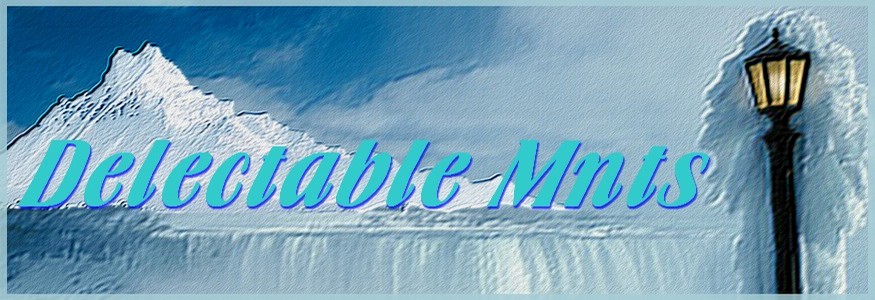|
|
A Creation Story
Premise. All religions have their creation stories, their myths poetically rendering both cosmic and tribal, racial, origins. All the ancients have their mythologies. From Egypt, to Sub-Saharan Africa, to India, to Siberia, Japan, to the Americas.
My sense of something. Nobody can know how it was in Old Europe, at least not in literature. Archeological evidence vast and tantalizing, and going back a good 30,000 years to the cave painting days. Central to their world was certainly fertility, both in game and then in agriculture. No other way to interpret those big bottomed, large breasted "Venuses." But involving many other artifacts as well, including those exquisite funerary figurines from the Cyclades. With the arrival of Indo-Europeans, starting around 2,000 B.C., situation gradually changes with the development of written down, as opposed to oral only, language. Celtic, Germanic, Italic, Slav, Baltic, Thracian, Phrygian, list goes on.
The Gaelics, and judging from the handed down literature coming from both Ireland and Wales, had creation stories centered on a goddess and her consort, her son/lover periodically sacrificed to ensure both fertility and fecundity. Stories too many to deny. One scholar conveniently sums up this goddess this way, calling her Soveriegnty. Nicely done that. The early stories involved warriors posed with impossible feats to accomplish, involved poets who had their magical incantations (shamans), involved one goddess or another (so many, so many there were), involved passages down into the otherworld, involved women with magical properties and warrior women. Theme almost always, but not always, much the same: quest, sacred marriage, impossible feats to accomplish. In other words, cyclical renewal of village, forest, and land through participatory magic.
So both the Irish and Welsh started codifying these religiously intended creation myths. Think I know when it started but declining to go specific. In Gaelic Ireland you got the Ulster Cycle of ancient Irish literature and everything that led up to that famous, decisive, Homeric-like battle, just a cattle raid called The Tain. In Wales you got mythical, semi-mythical figures such as Isolde and Tristan, Gawain, so many ladies of the court, all of whom would be the goddess in one aspect or another, the Fisher King, whose story Eliot drew on to, I think, poor affect, Percival, and finally Arthur himself. Likely, historically, there had been an Arthur living sometime around 500 A.D. A chieftan who tried hard to defend Britain from the encroaching Anglo-Saxons. He must have seemed like a convenient centerpiece for the tales, what would become known as the Matter of Arthur. It's all there in the Welsh collection called "The Mabinogian." Title derived from a titular demi-god, consort to the great queen, the goddess herself. So many clues.
1066 A.D. A year every English man or woman knows by, what?, the age of 10, 6? The Normans arrive, really just frenchified Vikings bought off by a king who gave them a province if they would stop with their nuisance plundering of France. They came to conquer of course and they did. But they damn near lost. Had the Anglo-Saxon King Harold not had to first fend off a Viking raid in the north, then turn south, a forced march, he would have been in better shape to deal with Billy boy, this in spite of the Normans' technological advantage, horse and stirrup. (a digression) So in the wake of the successful invasion came the civilians. Scribes, scholars, priests, organizers, and poets. Bureaucrats would follow on their heels. Later on in the 12th C., maybe 100 years after the conquest, came a French Trouvere, Chretian de Troyes. I've always wanted to know, feel, experience that moment when he came upon the Welsh material, the Matter of Arthur. It was a literary discovery he introduced, through transliteration, to Continental Europe. Culturally speaking, the impact was tectonic. Within 200 years it was Arthurian this and Arthurian that from France to Germany to Italy to Spain, even to East European countries. Really a tent revival kind of encounter, kept alive and active well into the 19th C. Not so much anymore, except in the usual Hollywood bastardizations of pretty much everything.
To the point. But you know, if I had started out here, with the point, I could have been finished with my tale a bunch of words ago. It's how pre-Socratics worked. Give the aphorism, move on, shut up. It's how intuitive thinkers like myself work. This Modern habit of requiring explanation and demonstration can be a nuisance. Point is this. Every time you read an Arthurian legend you're reading a religiously motivated creation story, something that got romanticized, literarialized through too many centuries of culturation. I'm appropriating from the scholar, Jesse Weston, here. The devolution comes down to this: "From Ritual to Romance." From religion to sentimentality and to the picaresque anti-hero. Goddesses, consorts or sacred son/lovers, champions, quests, shamans, priestesses even, all those adventures with one purpose in mind, cyclical renewal. I think of all the Arthurian heroes my favorites are these: Percival who starts out a bloody, stupid fool, ends up finding the Holy Grail, finally asks the right question of the Fisher King according to one telling. Gawain, a sworn lover of the goddess brazen enough to stand up to the Green Knight, knowing he's scheduled to get his head severed, and who also kisses, beds a an ugly old hag just because she asks him to, then wakes up the next morning to find the bright eyed goddess in his arms. Not lost on me is that Gawain's strength is lunar, not solar. Most favorite of all has to be Merlin, not a warrior but a poet who Jung called the goddess's archetypal son/lover. Of the goddess faces I have three favorite aspects. Isolde, Deirdre, and Morgain. All pushers of action. Of course, Cerridwen, mother of all things living, never too far behind any action in these creation stories.
But for my personal reactions, nothing here original. All documented, scholarified information.
Tere
|

